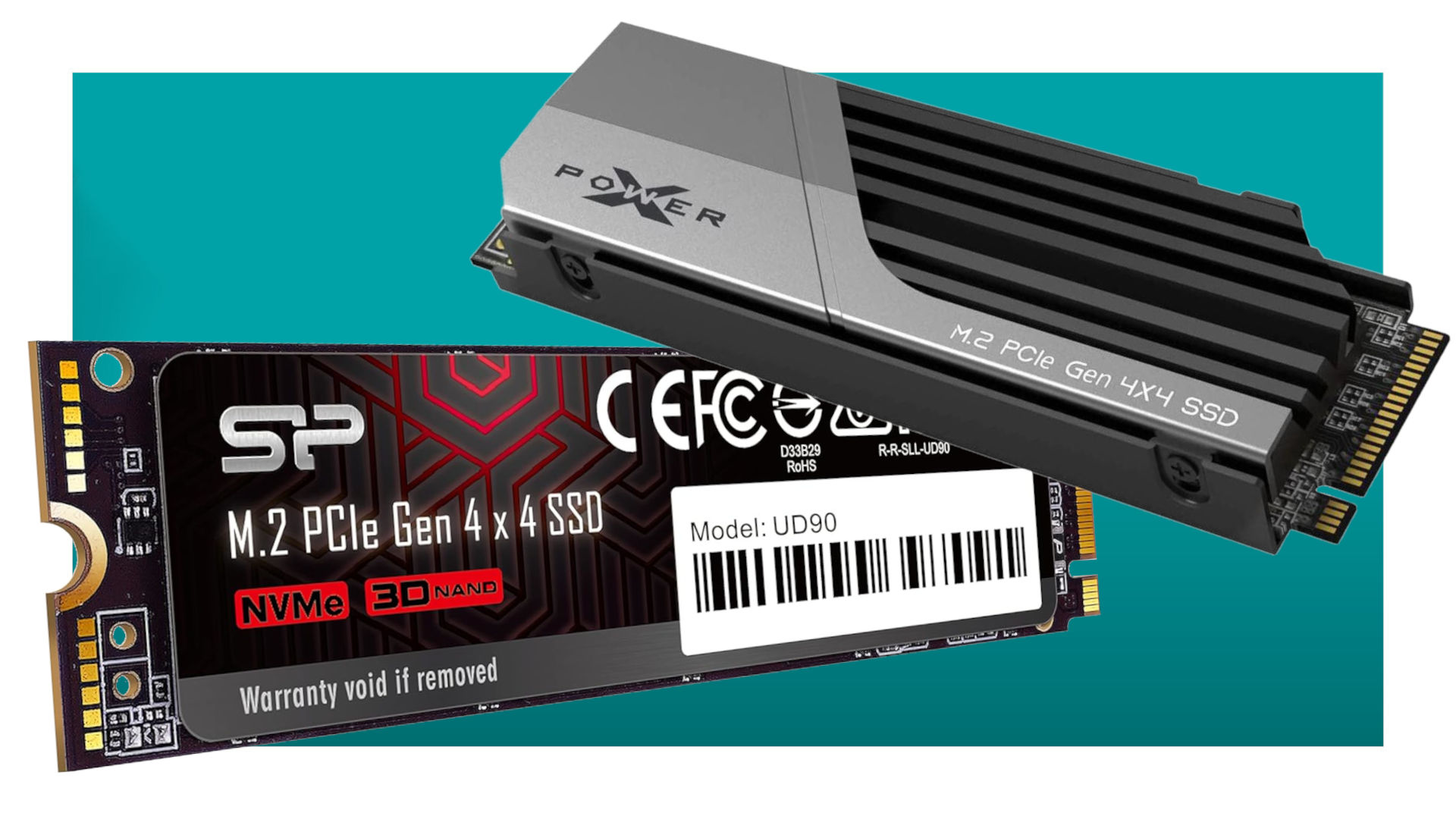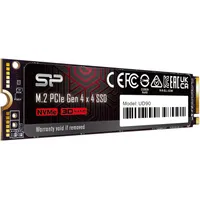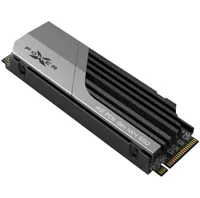If you love gaming as much as I do, then load up on NVMe storage with these 4 TB Prime Day SSD deals
They're big enough to hold two dozen or so copies of Baldur's Gate 3, my latest storage metric of choice.

Spending $200 or more on a single drive might seem to be a daft thing to do when there are some great Prime Day SSD deals to be found. But these two offers are a bit special because you're looking at 4 TB of NVMe storage, for a price that's as low as $0.05 per GB. Yes, that's right—just five cents per gigabyte. The mind boggles.
- We're curating all the best Prime Day PC gaming deals right here.
What I've got here is a nice choice of big-but-not-super-fast and big-and-super-fast, and there's only a $21 difference between the two. So just go for the latter, yes? Well, it's not quite as simple as that.
Quick list
- Silicon Power UD90 | $209 @ Amazon (save $31)
- Silicon Power XS70 | $230 @ Newegg (save $40)
Prime Day 4 TB SSDs
Silicon Power UD90 | 4 TB | NVMe | PCIe 4.0 | 5,000 MB/s read | 4,500 MB/s write | $239.99 $208.99 at Amazon (save $31)
At just $0.05 per GB, this is a pretty ridiculous amount of SSD storage for your money. It's not full Gen4 speed but for backups and general game storage, it's more than fast enough. Throw one of these in your gaming PC and you'll be set for years.
Price check: Newegg $209.99
Silicon Power XS70 | 4 TB | NVMe | PCIe 4.0 | 7,200 MB/s read | 6,800 MB/s write | $269.99 $229.99 at Newegg (save $40)
If you're looking for 4 TB of NVMe storage but don't want to sacrifice the speed, then this XS70 will fit the bill perfectly. That chunky heatsink is more than just for show, it does a great job of keeping every nice and cool.
Price check: Amazon $246.99
The cheaper offer is for a Silicon Power UD90 SSD. It's hard to tell exactly what NAND flash and controller chip is used in this model because Silicon Power uses a variety of suppliers for its parts. No matter what's underneath the label, though, it's not the fastest PCIe 4.0 SSD you'll see and the lack of DRAM means it won't be able to sustain its performance when handling hundreds of GBs of files.
But for general storage, be it a backup, documents, or games, it will be fine and it will serve you well for many years. Just make sure that you fit it into a motherboard that has heatsinks on its M.2 slots to prevent the drive from getting too hot.
Silicon Power does have a full-speed 4 TB SSD and it's the larger version of the 2 TB XS70 we reviewed last year. It's ridiculously fast and stable, thanks to the chunky pre-installed heatsink, though it doesn't offer hardware encryption. It's also suitable for use in a PlayStation 5, should you want to max out the storage on one of those.
For gaming PCs, it's a near-perfect storage solution. It uses Micron's TLC flash memory chips and a Phison controller, so performance won't be an issue. You can use it as an expansion drive, just to store games, but it's perfectly fine in the role of a sole SSD, hosting the operating system, applications, and games.
That big heatsink is quite easy to remove, so you can install it in motherboards that come with M.2 slot heatsinks. Personally, I quite like how it looks with its cooler, as it's quite understated in design.
Out of the two Silicon Power SSDs, I'd go with the XS70—for just $21 more, you're getting much better performance and probably better longevity, though it takes some serious amount of data writing and erasing to ruin a modern SSD in a short space of time.
It wasn't that long ago when SSDs were considered big at 1 TB. Now you can get one four times that size, big enough to store over 25 copies of Baldur's Gate 3. That's progress for you.
Keep up to date with the most important stories and the best deals, as picked by the PC Gamer team.

Nick, gaming, and computers all first met in the early 1980s. After leaving university, he became a physics and IT teacher and started writing about tech in the late 1990s. That resulted in him working with MadOnion to write the help files for 3DMark and PCMark. After a short stint working at Beyond3D.com, Nick joined Futuremark (MadOnion rebranded) full-time, as editor-in-chief for its PC gaming section, YouGamers. After the site shutdown, he became an engineering and computing lecturer for many years, but missed the writing bug. Cue four years at TechSpot.com covering everything and anything to do with tech and PCs. He freely admits to being far too obsessed with GPUs and open-world grindy RPGs, but who isn't these days?



